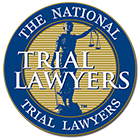Do the Police Need to Read Miranda Rights to a Suspect?
Most of what the American population (and internationally, perhaps) knows about being read their Miranda rights is from watching our many police dramas on television or in films. Have you ever caught yourself saying “Hey, they didn’t read him his rights!” thinking that the suspect may get off on a technicality? That’s not quite how the Miranda rights work.

First of all, these are your Miranda rights:
- You have the right to remain silent.
- If you do say anything, it can be used against you in a court of law.
- You have the right to have a lawyer present during any questioning.
- If you cannot afford a lawyer, one will be appointed for you if you so desire.
So what are the Miranda rights? This is called a Miranda warning, and the name comes from the U.S. Supreme Court’s decision on Miranda vs. Arizona. This requires that officers let you know of certain facts after your arrest and before questioning you. If a person is in custody, i.e. under arrest, and if an officer wants to be able to ask questions that a prosecutor can use in a court of law, they better read that person the Miranda warning. And it doesn’t matter if it happens on street corner, in a jail, in an interrogation room, but the person in custody needs to hear those four sentences.
If they don’t, what happens? The answers to any questions (or even a full confession) given by the person in custody will be inadmissible in court. That’s it. They won’t escape punishment by getting off on a technicality.
But this fact should be noted: If a person is not in custody, the Miranda rights are not necessary. In fact, it’s not required, and anything that the person says can be used in court. Is that person under any legal requirement to answer those questions? Not typically, unless in situations where identification must be provided.
Most officers prefer not to arrest a person just so they can avoid giving the Miranda warning. They make it clear that the suspect is free to go, then when they get the incriminating statement they were looking for, they then make the arrest.
If you are arrested, you are also not obligated to answer any questions, and we strongly recommend that you do not, especially before your legal counsel arrives.
Does this sound a little too simple? It is—the Miranda rule is actually very complex and varies from state to state. The best thing to do is to either contact a local attorney for a full explanation or, if you are arrested, keep your thoughts to yourself and answer as few questions as you can until your lawyer can advise you.
Are you in a position where you need a defense attorney? Call the Law Offices of Glew and Kim immediately at 714-713-4525 for your free consultation, and download our free Miranda Response Card.














